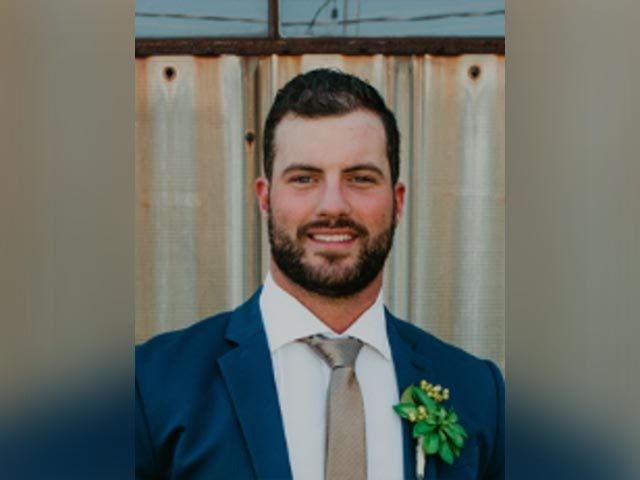A 29-year-old Texas hockey player and coach died from an “accidental death” due to oxycodone and Xanax toxicity fueled by his coronavirus infection, a medical examiner said after the New York Times indicated the virus alone was to blame for his demise.
The New York Times did not mention anything about drugs found in the body of the deceased Texas hockey player and coach, making it seem like the novel coronavirus disease (COVID-19) was the only culprit behind his death.
Medical experts believe that taking oxycodone, an opioid, and the benzodiazepine alprazolam (Xanax), could result in overdose-related breathing problems.
In an email unveiled by the recipient, former New York Times reporter Alex Berenson, via Twitter on Thursday, Leigh Anne Nolan, the secretary for the Collin County Medical Examiner, declared, “Averil Amburgey’s death was ruled an accidental death due to oxycodone and alprazolam toxicity with his symptomatic COVID-19 infection contributing to his death.”
Medical examiners and federal health officials often classify drug overdoses as accidental or involuntary poisonings.
“Rates of overdose death among those co-dispensed benzodiazepines and opioid analgesics were ten times higher … than opioid analgesics alone,” according to a 2016 study published by the U.S. National Institutes of Health (NIH).
Ingesting opioids and benzodiazepines could exacerbate the breathing problems linked to COVID-19, according to some health experts.
In a letter to the editor published by the American Journal of Psychiatry, Dr. Jenny Boyer warned that medications like opioids and benzodiazepines can increase breathing problems in coronavirus patients. She wrote:
It is essential that those prescribing medication-assisted treatment are acutely aware that these opiate agonists and agonist/antagonists are also capable of causing significant respiratory distress. Finally, it is important to remember that benzodiazepines (especially when combined with opiates) are associated with respiratory depression in patients with other respiratory challenges.
Boyer advised clinicians to at least discuss “temporarily” decreasing the dosage and quantity of opioids or medication-assisted treatment in cases in which the patient becomes symptomatic and/or has tested positive for COVID-19.
“People who use drugs may have underlying medical conditions that put them at increased risk for severe illness from COVID-19, and they may have concerns and questions related to their risk,” the U.S. Centers for Disease Control and Prevention (CDC) warns.
In Amburgey’s obituary, the Times left out that he was taking oxycodone and Xanax.
Berenson criticized the Times for seizing on Amburgey’s situation to promote a narrative that the coronavirus is not forsaking the young and healthy but rather everyone is vulnerable and needs to stay inside.
When combined in non-therapeutic doses of opioids, Xanax is associated with potentially worsening respiratory depression, which could potentially worsen COVID-19 symptoms
Benzodiazepines “may cause respiratory depression in patients with existing respiratory compromise,” the U.K.’s National Health Service (NHS) reported on October 8.
In July, CDC Director Dr. Robert Redfield agreed with a Republican lawmaker that American hospitals have a “perverse” monetary “incentive” to inflate their count of coronavirus fatalities.
For example, a person may die in a car accident, but health officials may deem the death a virus death “because there’s greater reimbursement,” Redfield indicated.
According to the CDC, hospitals have determined that “intentional and unintentional injury, poisoning and other adverse events” — including drug overdoses — have contributed to thousands of COVID-19-related deaths.

COMMENTS
Please let us know if you're having issues with commenting.